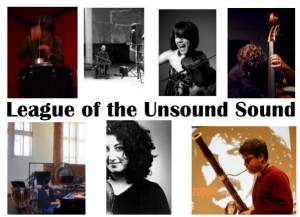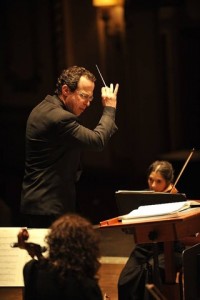 It’s not uncommon to see articles both decrying the sad state of affairs in classical music as a whole as well as celebrating the new opportunities that are available for both composers and performers with the right amount of musical and entrepreneurial skill, luck and perseverance. A prime example of one that covers both issues was recently published as a transcript of a speech given by the Guardian’s Tom Service with the intentionally controversial title “So long, and thanks for all the noise: 2010 and the end of musical history”. Well-spoken and thoughtful (and without the acidity of many critics from across the pond), Service writes:
It’s not uncommon to see articles both decrying the sad state of affairs in classical music as a whole as well as celebrating the new opportunities that are available for both composers and performers with the right amount of musical and entrepreneurial skill, luck and perseverance. A prime example of one that covers both issues was recently published as a transcript of a speech given by the Guardian’s Tom Service with the intentionally controversial title “So long, and thanks for all the noise: 2010 and the end of musical history”. Well-spoken and thoughtful (and without the acidity of many critics from across the pond), Service writes:
My sense is that many young composers now realise that the game is up, that the conventional paths to fame and, er, fortune in contemporary classical culture just aren’t worth the candle. Instead, they’re better off on their own, not least because their music doesn’t fit the line-ups of an orchestra, or even the 1 to a part ensembles of the Sinfonietta, or the Birmingham Contemporary Music Group, or Liverpool’s Ensemble 10:10, or Manchester’s Psappha – a line-up and repertoire whose time has probably also come, has also become a living history more than something genuinely contemporary. Composers still need to make choices, of course; being open to the rest of the world does not guarantee the creation of great, or even good art in an of itself, and they will have to find their own limitations, draw their own lines in the shifting sands of musical culture. But composing without the fear of traducing the absurd unwritten laws of modernist composition will only be a good thing. Like Reich and Glass before them, today’s composers have the chance to build their own communities of listeners and audiences – whether in the flesh or on-line – and make the music that matters to them for people who care about it – and actually enjoy it.
Service brings up many good points and pulls no punches, laying responsibility on the future of new/concert/art/whatever music (rightly so) at the feet of the composers both young & old as well as the performing and academic institutions that help to foster contemporary musical art. In my own opinion, the idea that it’s perfectly legitimate to use whatever medium/style/technique that allows a composer to bring his/her voice into being has been growing and gaining momentum for years now, and more articles like this are surely in store. What has not yet been discussed nearly enough – and this may take quite some time – is the ramifications of our ever-increasingly “big-tent” art form on both those who create and those who analyze and interpret those creations. I can see where Service is coming from with his suggestion of the “end of musical history” as it has been characterized up till now, though I’d prefer the “beginning of a new musical history” myself.
Read the rest here.
 Hopefully you’ve been following Armando Bayolo’s postings on our Forum about his adventures with Louis Andriessen’s De Materie – I’ve known about it for over a year now and it’s intensely satisfying seeing a good friend’s massive endeavors come to fruition. If you’re even remotely close to Washington DC tonight, there’s nothing culturally more important on the Eastern Seaboard than
Hopefully you’ve been following Armando Bayolo’s postings on our Forum about his adventures with Louis Andriessen’s De Materie – I’ve known about it for over a year now and it’s intensely satisfying seeing a good friend’s massive endeavors come to fruition. If you’re even remotely close to Washington DC tonight, there’s nothing culturally more important on the Eastern Seaboard than 
 2010 celebrates 35 years of the new music festival
2010 celebrates 35 years of the new music festival 
 From the Pulitzer
From the Pulitzer  In reaction to a roundtable
In reaction to a roundtable